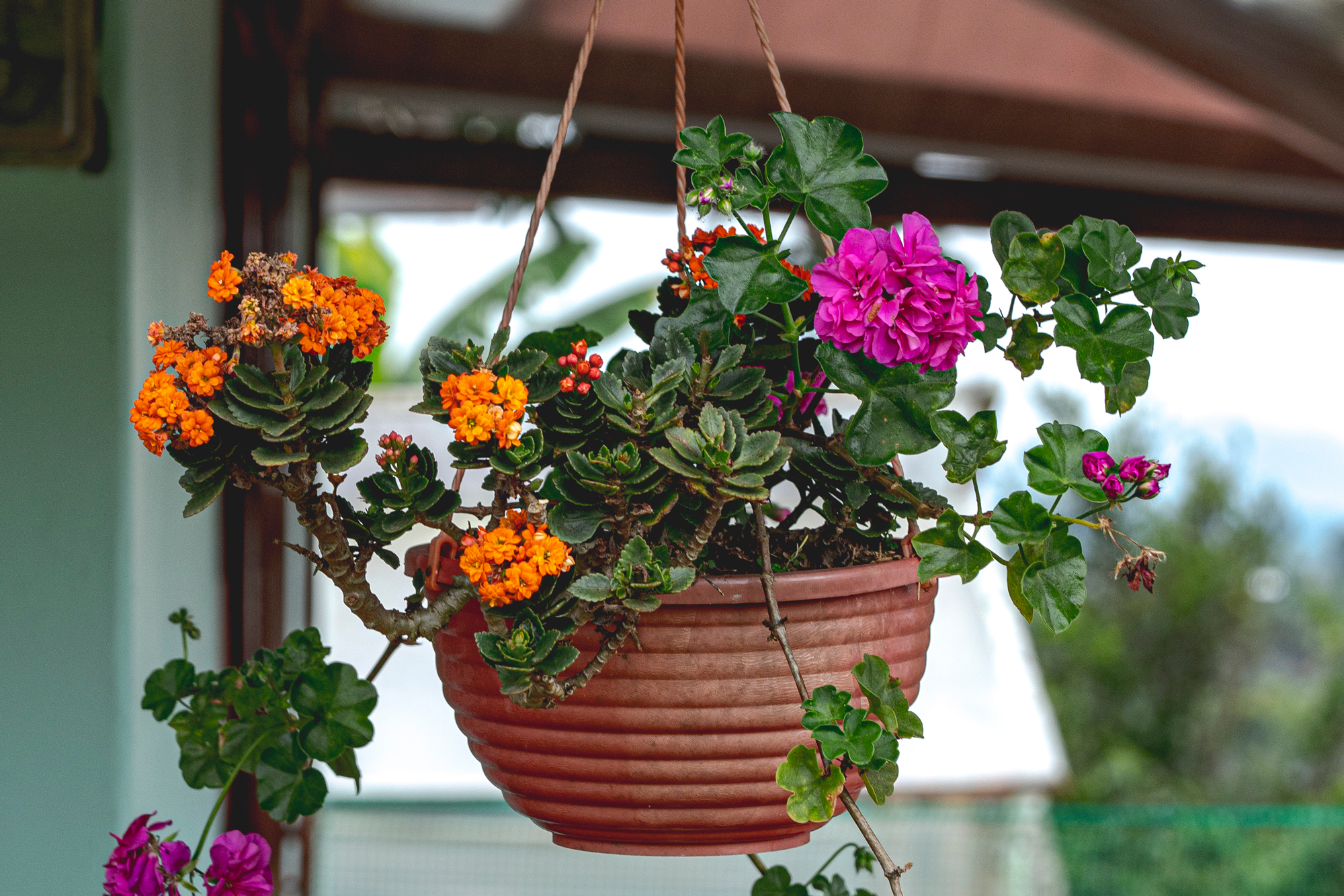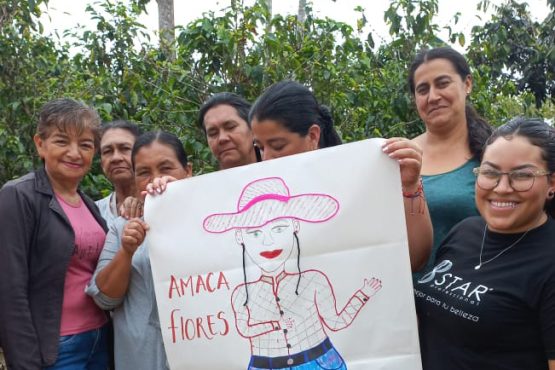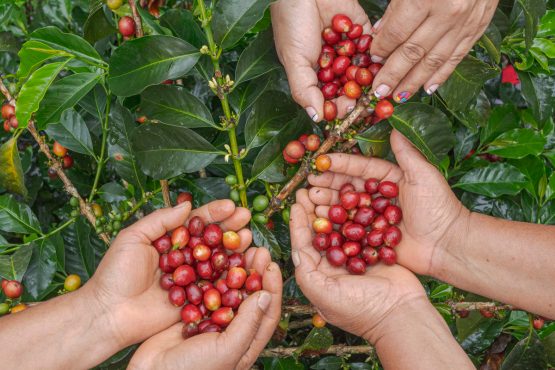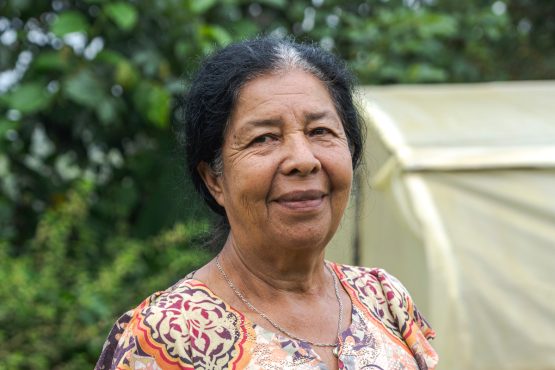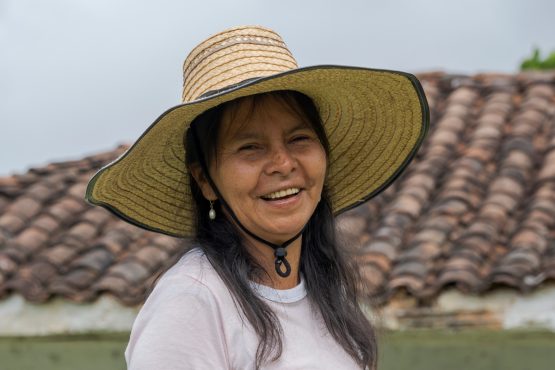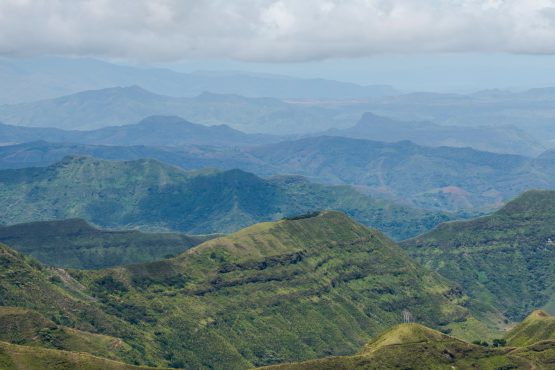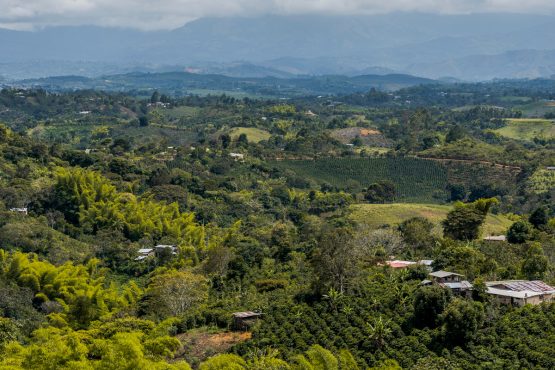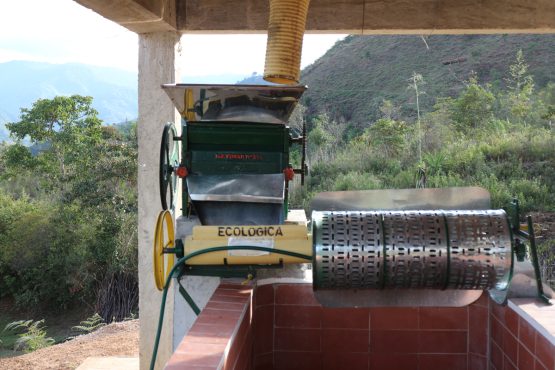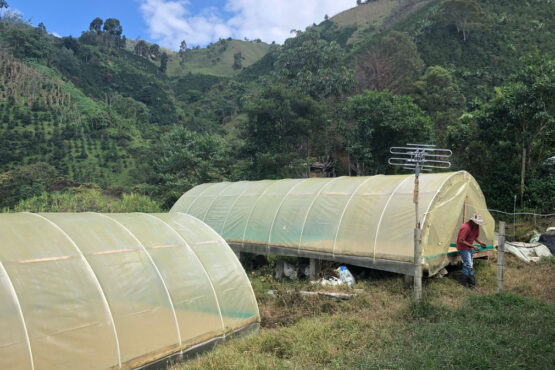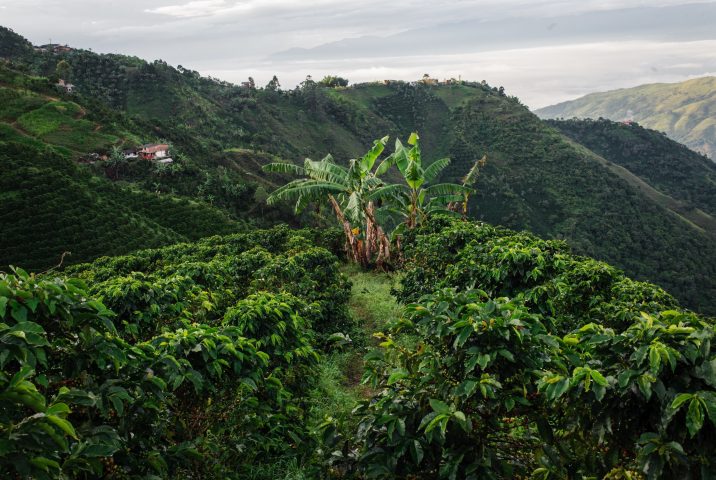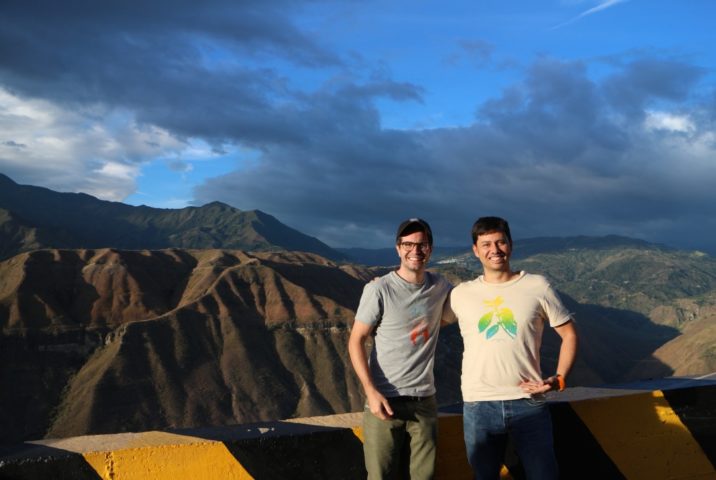El Rosal
Intensely sweet, with a rich body and winey acidity. Blood orange, dark chocolate and plum wine.
This coffee was produced by Erika Meneses Vásquez. Erika is a member of the AMACA (Asociación de Mujeres Productoras Agropecuarias del Cauca) women’s association, a group of producers who grow and process coffee in the municipality of El Tambo in the state of Cauca, in the south of Colombia. Her six-hectare farm “El Rosal,” (which translates to “the rose garden” in Spanish) is located in the small town of Paso Malo, at an elevation of 1,800-1,900m above sea level.
Erika is young — she’s only in her mid-20s — but has been a part of AMACA for eleven years. Her connection to coffee runs deep and goes well beyond activities at her farm. She is an amateur barista, and dreams establishing a roastery and café for AMACA, to help further connect the association with the towns around El Tambo. Erika has found space within AMACA to share her knowledge and express her unique perspective on coffee growing and community, and we’re excited to see how far she can go in the coming years.
At El Rosal, Erika grows the Castillo and Colombia varieties, which were introduced by Colombia’s Coffee Federation (FNC) in the 1980s as part of the country’s efforts to reduce the incidence of coffee leaf rust without affecting cup quality. She works diligently at the farm to make sure her coffee stands out from the crowd. Her meticulous approach to processing has helped her consistently deliver a coffee that is clean and transparent, showcasing the region it comes from, the variability of each harvest and the passion and hard work that led to its production.
ABOUT AMACA
AMACA was founded some 30 years ago by Luz Marina Sánchez and Luz Mila Potosí, with the intention of banding together the female coffee growers and land owners of El Tambo to find better opportunities for their crop. The early days weren’t easy for the association — many neighbouring producers did not understand why project members were devoting so much time and effort to the careful selection of cherries during harvest or careful processing before selling their crops at the local market. At the time, the general understanding was that all coffee received the same price, regardless of how meticulous the picking and processing had been. The women of AMACA, however, were among the first in the region to promote and advocate for specialty coffee production, as they understood that proper care and practices would improve the final cup results and build a more quality focused market, willing to pay higher premiums.
Today, AMACA provides opportunities for leadership amongst women of all ages in the region and stands as a symbol of empowerment, social change and community work, with Luz Marina and Luz Mila still at the helm. The project has brought economic stability to many communities near El Tambo, with many of the contributing producers acting as the most reliable and primary income earners for their families. In the coming years, Luz Marina and Luz Mila are hoping to purchase a vehicle for the association, as this will allow them to reach Cauca’s capital city of Popayán more easily and streamline the delivery of their coffee to mills and buyers in town.
The farms of AMACA’s members’ are typically very small – on average just two hectares in size – and are located between 17,50-1,900m above sea level, in the steep, rugged hills of El Tambo. The rich, volcanic soil of the region is ideal for agriculture and adds to the excellent cup quality of coffees grown and processed here. Cool overnight temperatures result in dense beans, which are notable for their sweetness and complexity. Lower temperatures and high rainfall also influence processing techniques, with longer than usual ferment and drying times being necessary.
Most farms in the region are planted with Caturra, which was the most popular variety during the 1970s and 1980s when the farms were established. In recent years, many farmers in the region have also introduced hybrid varietals like Colombia and Castillo, as part of the country’s efforts to reduce the incidence of coffee leaf rust, without affecting cup quality. The coffee is selectively hand-harvested, with most labour being provided by the farmers and their families.
ABOUT EL TAMBO
The municipality of El Tambo is located some 30 kilometres west of the state of Cauca’s capitally city Popayán, and is considered one of Colombia’s richest agricultural hubs. Thanks to the region’s varied topography and numerous microclimates, El Tambo can sustain most types of farming — from food crops like plantain and yuca, to cash crops like coffee and sugarcane. The surrounding area is home to three of Cauca’s main waterways: Río Patía, Río Cauca and Río Micay, along with the Munchique National Natural Park, which contains 30 streams, 40 waterfalls and some of Colombia’s most biodiverse lands.
El Tambo is the traditional home of the Pubense people, whose capital was located in the valley of Pubén (modern day Popayán). Like many of the region’s indigenous communities, they fiercely defended their land during the brutal Spanish invasion of Colombia and are one of the few cultures that have survived colonisation. In El Tambo, most Pubenses live in the Alto del Rey (which translates to “the king’s heights” in Spanish) indigenous reserve, a small hamlet nestled in the municipality’s hills. Founded in the 16th century, Alto del Rey continues to operate under its own rule of law, independently of the Colombian government. Its communities are dedicated to sustenance farming of traditional crops like yuca and corn, with families and neighbours trading amongst themselves (rather than using money) to protect their food sovereignty and independence.
Coffee from Cauca has historically been very difficult to access due to the region’s isolation and instability. For many years this part of Colombia was under the control of Colombia’s notorious rebel group, the FARC, and as a result, it was unsafe and violent. Since 2012, safe access to this region has been possible as a result of peace talks between the national government and the rebels. Thanks to these efforts, more and more stunning coffees from small producers in the region have become accessible to international buyers.
Our export partners for this coffee, Pergamino, have worked hard commercialise specialty-grade coffee throughout Cauca, and are now able to source some outstanding coffees from very dedicated producers. They work closely with the producers to give them feedback on their coffees (provided by Pergamino’s expert team of cuppers) and provide top up payments when the coffee is sold at a higher premium.
Head here to learn more about the work of Pergamino.
HOW THIS COFFEE WAS PROCESSED
Coffee cherries for this lot was selectively hand-harvested, with most labour being provided by Erika and her family. These were processed using the washed method at El Rosal’s ‘micro-beneficio’ (mill).
The coffee was pulped using a small manual or electric pulper and then placed into a fermentation tank, where it was fermented for up to 48 hours (depending on the weather) and then washed using clean water from nearby rivers and streams.
The coffee was then carefully dried (over 10–18 days) on parabolic beds, which are constructed a bit like a ‘hoop house’ greenhouse, and act to protect the coffee from the rain and prevent condensation dripping back onto the drying beans. The greenhouses are constructed out of plastic sheets and have adjustable walls to help with airflow and temperature control to ensure the coffee can dry slowly and evenly.
Once dry, the coffee was delivered to Pergamino’s warehouse in Medellín, where it was cupped and graded. Once approved, coffee rested in parchment until it was ready for export.
